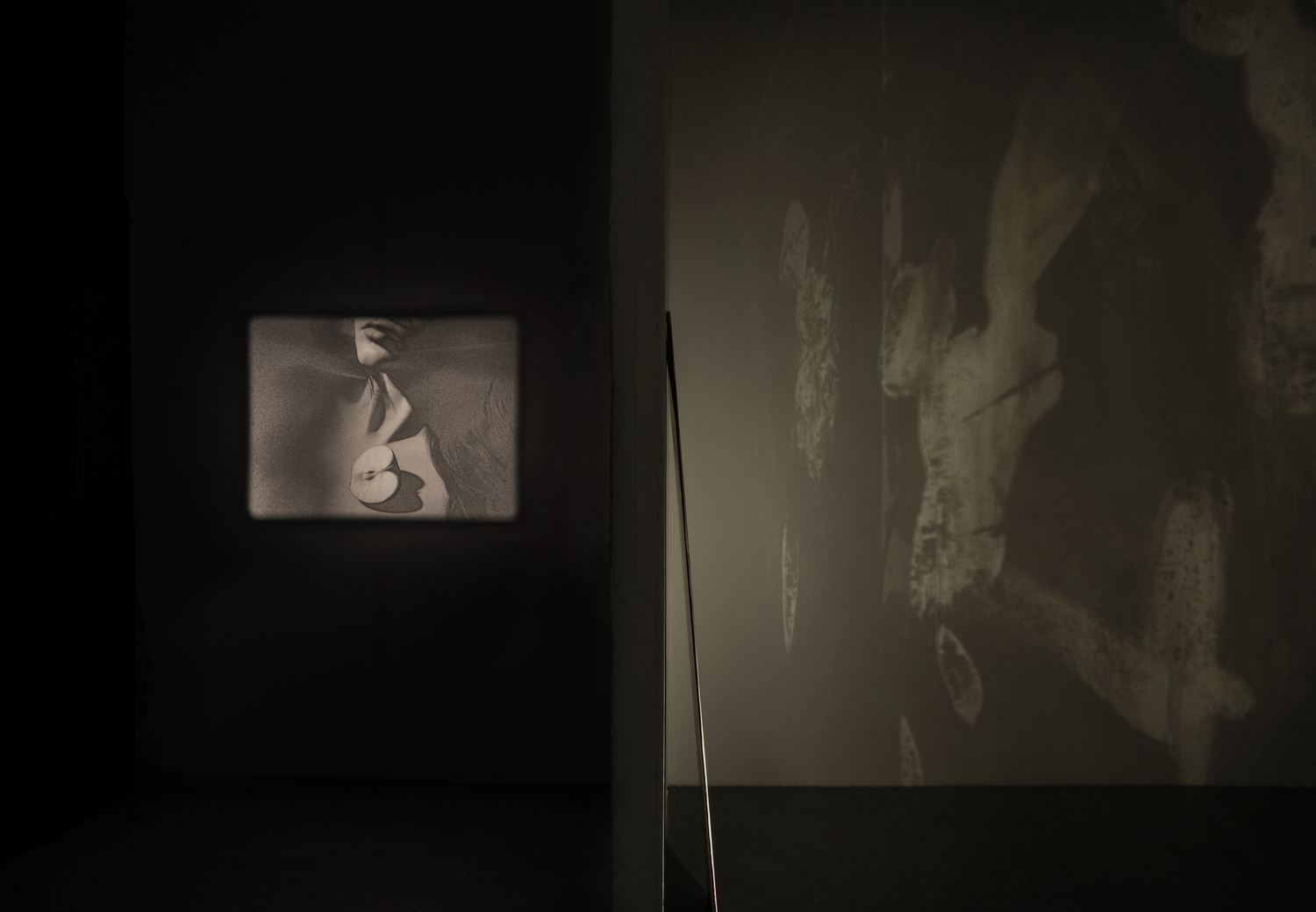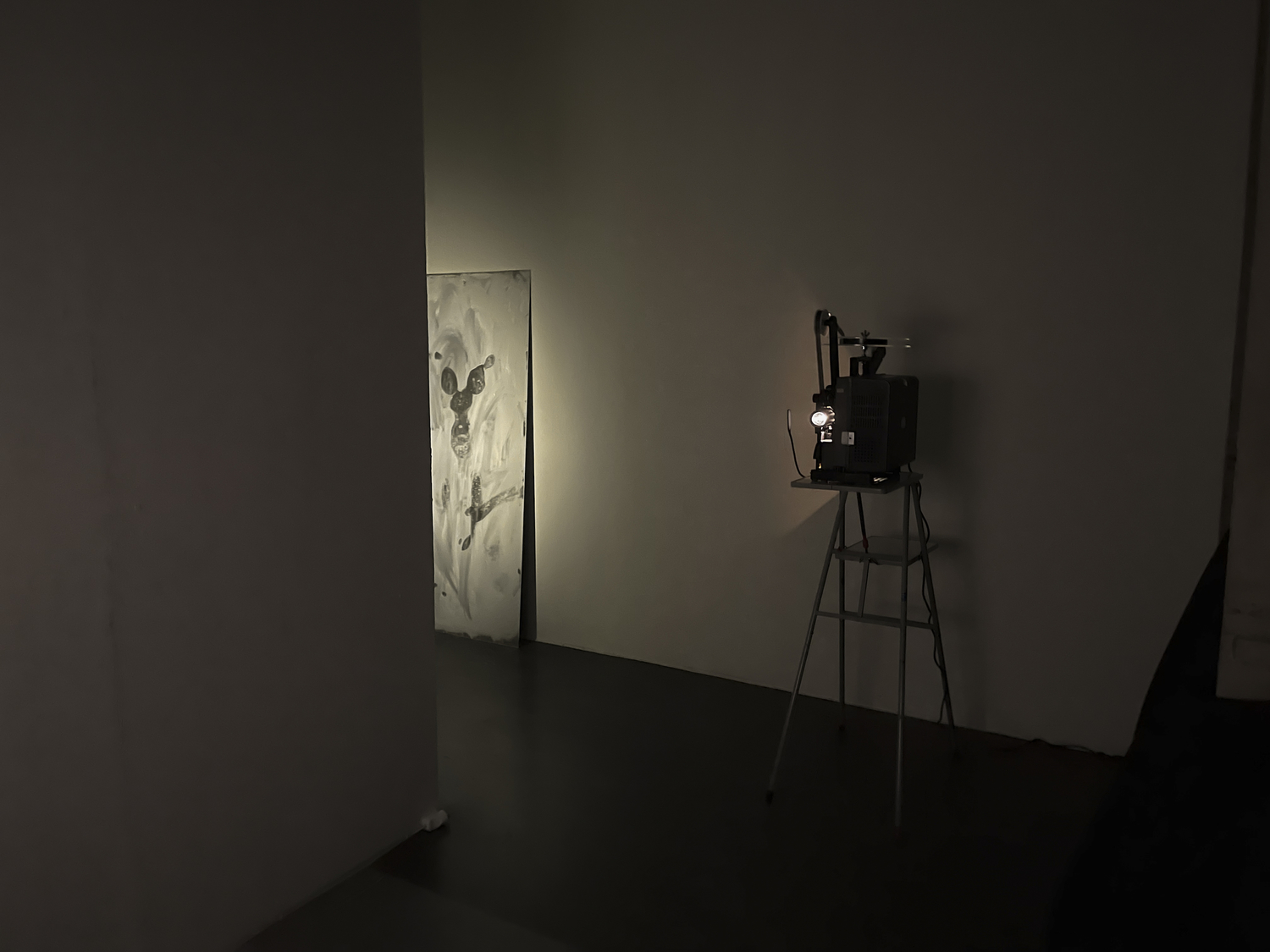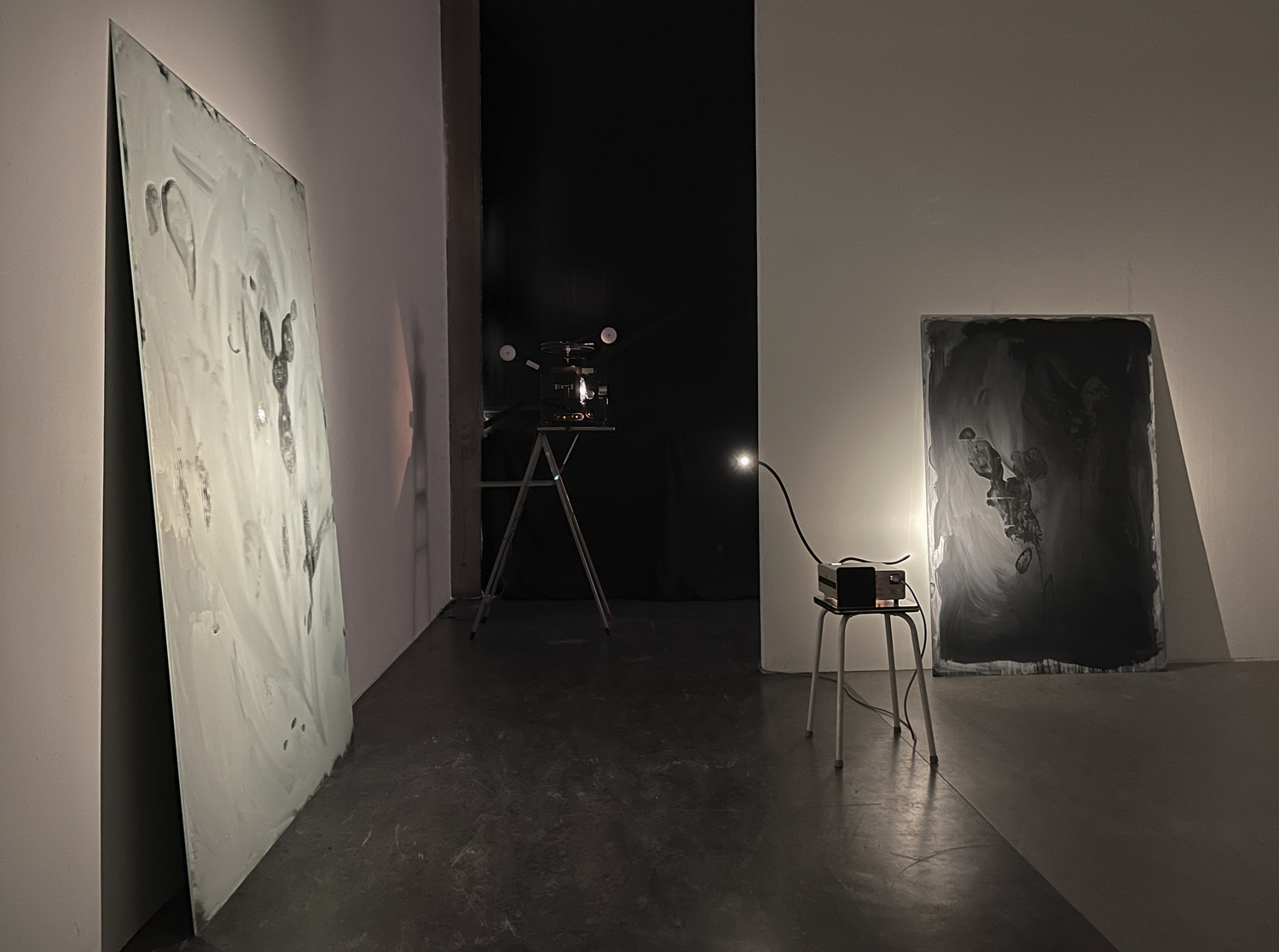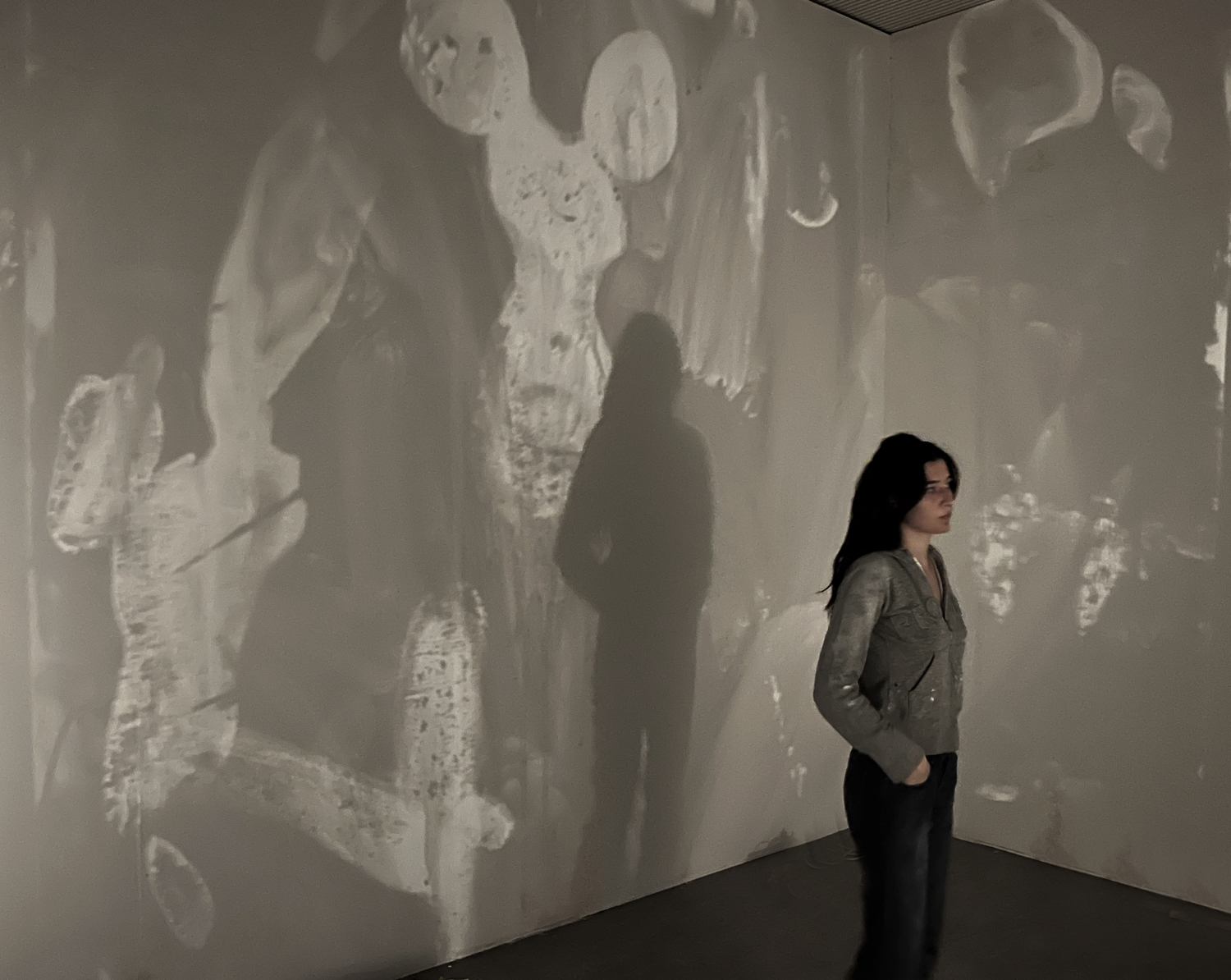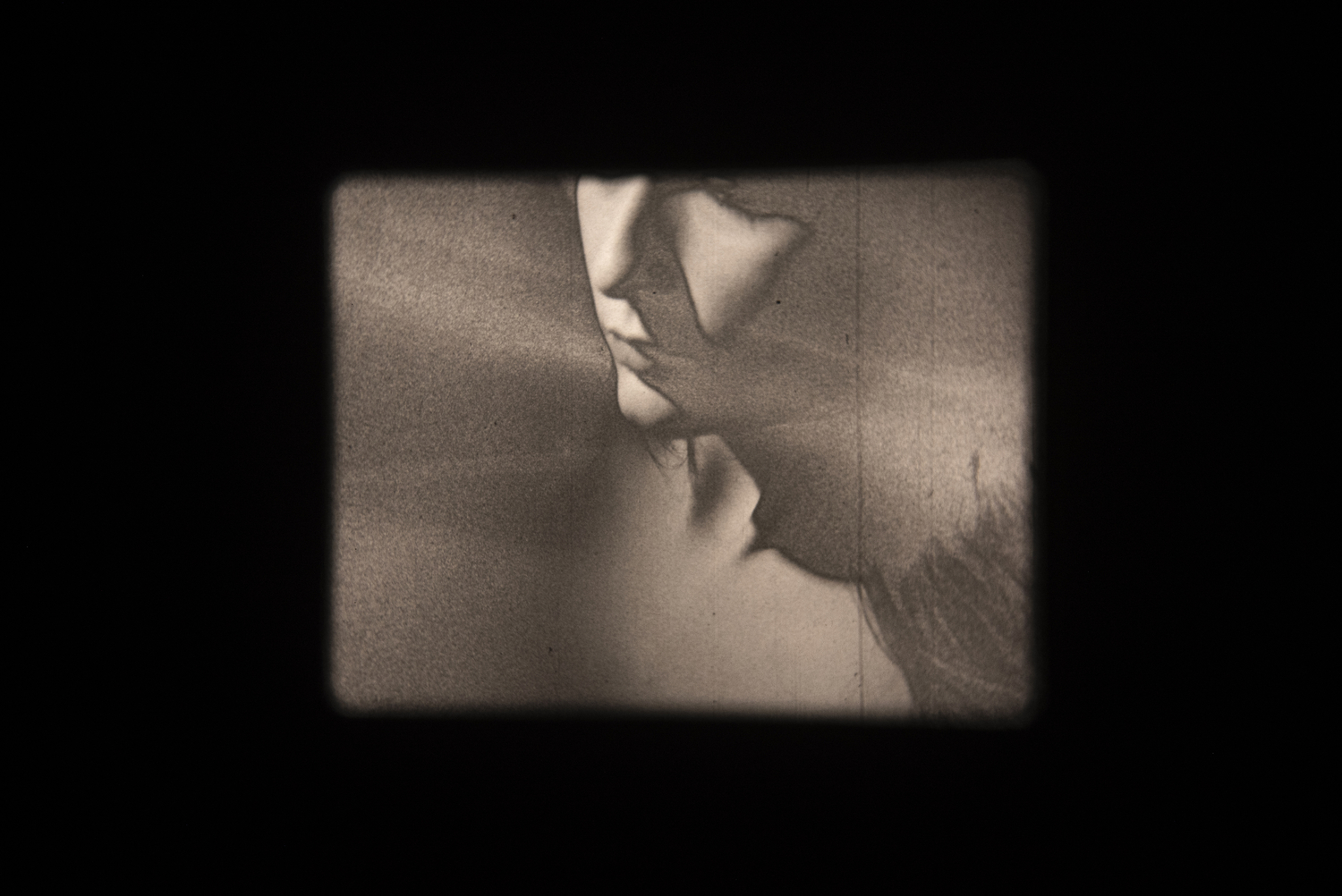
Zora Ottink
Netherlands, 1997
zoraottink.com
www.instagram.com/zoraottink
Thesis: The Crime of Being an Artist
Novella: ‘Eeuwige Sneeuw’
‘It will fade’ is an installation in which the view¬¬er enters the camera and negative becomes positive. From my photographic background I go back to the basics of the medium, work with solarization in film (‘It was so very long ago’) and study through reflections of light the image from within.
I feared to go unnoticed, be forgotten, evaporate like steam on a window. I longed to leave something behind, an impression, or an imprint, but knew that this would too evaporate. Yet, this realization was liberating as well.
I looked at my mirror-self and painted over my reflection with white chalk, let the water flow over my body, and pressed my damp skin against the white surface. As I stepped away, my print dripped down the glass. I had created a diapositive of what Yves Klein had done in 1960 with models as live brushes on paper. There was a void where I had once been. Every spectator could fill me in with their reflection. I positioned the mirror against the wall, and lit it with a lamp. In the semidarkness, the print doubled like an echo on the wall. Negative had become positive.
How special was I? How meaningful could I be as a creator, as an artist, as a woman? In my thesis ‘The Crime of Being an Artist,’ I investigated how autonomous you can be as an artist. You are always consciously or unconsciously connected to your predecessors. The myth is that you operate autonomously, but in reality you are a thief and a connector in one.
